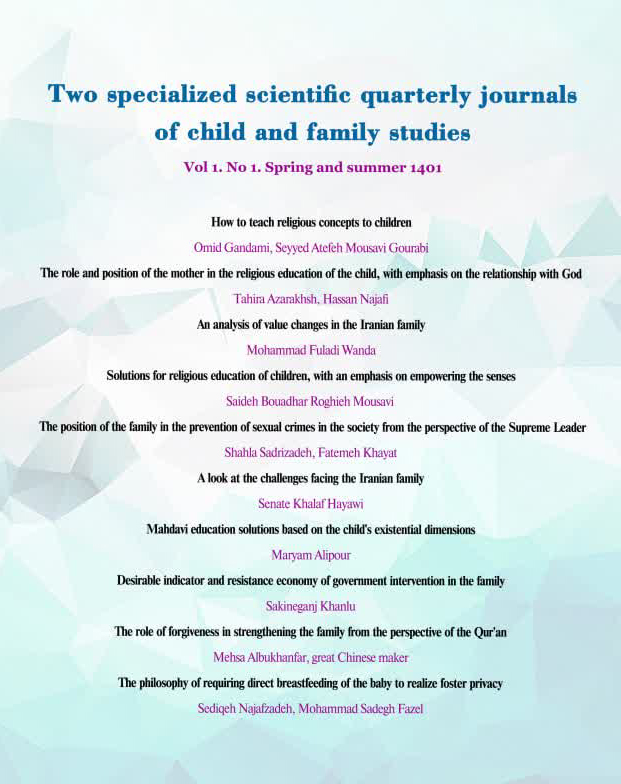Ways to strengthen children's self-esteem in Islamic education
Document Type : علمی تخصصی
Abstract
Abstract
Self-esteem is one of the prominent and key issues in the life of every human being, which can affect his life and become the main factor of his success or failure. In fact, due to its special importance in Islamic education, this issue is considered as an important and prominent goal in the realization of health in the dimension of human spirit and soul. Honor has been one of the important characteristics of great people, which shows a kind of inner strength in a person and can help him in different situations. Self-esteem can increase a person's effort to the extent that he can overcome difficult situations in life. This article is compiled with analytical and documentary method.
The findings of the research show that one of the vital issues in raising a child is strengthening this inner strength; It means dignity so that he can become a strong and strong person in the future against the adversities of life. In the religion of Islam, the importance of honor, especially its strengthening during childhood and the child's ability to be educated, has been mentioned many times, which speaks volumes for the effect of this attribute on a human being. It is a fact that if a person grows and develops with dignity especially during childhood, he can overcome any situation and remain strong. For this reason, this issue has been discussed in great detail in this article.
Self-esteem is one of the prominent and key issues in the life of every human being, which can affect his life and become the main factor of his success or failure. In fact, due to its special importance in Islamic education, this issue is considered as an important and prominent goal in the realization of health in the dimension of human spirit and soul. Honor has been one of the important characteristics of great people, which shows a kind of inner strength in a person and can help him in different situations. Self-esteem can increase a person's effort to the extent that he can overcome difficult situations in life. This article is compiled with analytical and documentary method.
The findings of the research show that one of the vital issues in raising a child is strengthening this inner strength; It means dignity so that he can become a strong and strong person in the future against the adversities of life. In the religion of Islam, the importance of honor, especially its strengthening during childhood and the child's ability to be educated, has been mentioned many times, which speaks volumes for the effect of this attribute on a human being. It is a fact that if a person grows and develops with dignity especially during childhood, he can overcome any situation and remain strong. For this reason, this issue has been discussed in great detail in this article.
Keywords
